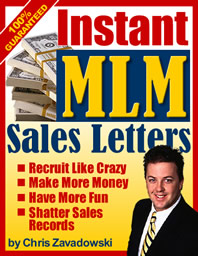 Having recently had another birthday click over on the odometer, time is on my mind. It’s never far from it in my work-cave, because I have strategically placed more than a dozen clocks around the room and can’t look in any direction without seeing one.
Having recently had another birthday click over on the odometer, time is on my mind. It’s never far from it in my work-cave, because I have strategically placed more than a dozen clocks around the room and can’t look in any direction without seeing one.
As I describe in my book, No B.S. Time Management for Entrepreneurs, I organize everything with start and pre-determined end times; if someone has a phone appointment with me they know in advance when it ends, not just when it starts, and it does end as scheduled even if in mid-sentence.
I have trained and conditioned myself to be hyper-sensitive to time, and I train my clients to respect my hyper-sensitivity about it.
Why?
Because your bank balance and your satisfaction or dissatisfaction with it is more a reflection of how you invest your time than reflection of anything else. This the more dominant factor in wealth or relative poverty, success or failure, fulfillment or frustration than all externals combined – whatever Obama and the Merry Band of Thieves in Washington DC may be up to, whatever European welfare state is in collapse, whatever volcano or oil spill is occurring, whether economy is booming or struggling, whether your particular industry is healthy or diseased. These external things are fluid.
In my 35 years as serial entrepreneur, made-from-scratch multi-millionaire, and business advisor to thousands, I’ve seen all these things and worse come and go, occur and occur again, and I’ve seen some entrepreneurs surrender their attitudes and reality to them, while others defy them and thrive.
My primary area of specialization is ‘marketing’, and most of my articles for ETR are laser-focused on that, but truth is, marketing and selling of goods, services or concepts is sabotaged or supported by how much control the individual or individuals who are the business’ driving force exercise over the investment, direction and consumption of their time, and with it, their energy and creativity.
In reality, time is the asset the entrepreneur owns outright and has total control over. I don’t really need to follow you around and observe how you use your time to gauge how you’re doing in business. I only need hear about your philosophy about time, that governs your behavior and what you will tolerate or refuse to tolerate in the behavior of those around you.
For example, do you have litmus tests, and what are they? One of mine: if somebody can’t keep seemingly minor commitments, they can’t be trusted to honor important ones either. If they are allowed to hang around, soon they’ll be cause of you failing to honor your commitments to yourself and others.
Or, for example, how do you relate time and goals? My hovering question is: will this use of my time move me measurably closer to my meaningful goals? Is there even a chance it will? If not, why do it?
Or, a governing rule to safeguard your time and sanity. Mine: if I wake up three mornings in a row thinking about you, and we’re not having sex, you gotta go. Do you actually handle time as money, not just give lip service to the idea? Can you tell me what your time must be worth per minute to achieve your income goal?
It’s difficult to find a clock in Las Vegas casinos because those casinos are designed to separate you from as much of your money as possible; to make you a loser, and that is best done by dulling your sensitivity to the passing of time. The same principle applies to your business life. The surest way to be a loser is to be casual or insensitive about time.
I’ve worked up close ‘n personal with many, many entrepreneurs who’ve converted ideas and grit into fortunes. The difference between them and the majority of also-rans is never the originality or even the quality of their ideas.
As a matter of fact, I’ve see fortunes manufactured from mediocre ideas, and great ideas still-born. This is important because far too many entrepreneurs and, candidly, those who observe them, report on them, write about them, glorify their success stories, still hold up The Great Idea as the pedestal-worthy holy grail. That is worship of a false god.
When the Tampa Bay Buccaneers were first added to the NFL as an expansion team, and setting records for consecutive losses and embarrassing performances, after one game, a reporter stuck a microphone in the head coach, John McKay’s face, and asked how he felt about his team’s execution that day.
McKay quipped that he was in favor of it. There’s reality. Execute or be executed. It’s how business really works. Hardly anybody gets paid for their ideas. Not even the Imagineers at Disney. We actually get paid for what we get done. To the ignorant, my area of marketing seems to be about ideas. The insiders know: it is about implementation.
The entrepreneur has a situation encouraging of poor productivity: he is his own boss. Often this produces an unproductive employee and a lenient, dysfunctional boss. A two-fer.
This is why you must create a success environment for yourself, impose strict deadlines on yourself and be ruthlessly resistant to waste of time by self and others, and hold yourself accountable hour by hour.
If you aren’t willing to work under such self-imposed pressure, I suggest forgetting the idea of getting and staying rich as king of your own kingdom. Every great kingdom needs a ruler with an iron-fist.
– By Dan S. Kennedy, serial entrepreneur, from-scratch multi-millionaire, speaker, consultant, coach, author of 13 books including the No B.S. series, and editor of The No B.S. Marketing Letter. FOR A SPECIAL FREE GIFT FROM DAN FOR YOU including newsletters, audio CD’s and more: visit: www.FreeDanKennedyNewsletter.com

 1 Comment
1 Comment There are two basic ways people can react, when they are have-not’s, observing have’s; when they are not doing nearly as well as some others in their field, industry or community.
There are two basic ways people can react, when they are have-not’s, observing have’s; when they are not doing nearly as well as some others in their field, industry or community.



Recent Comments